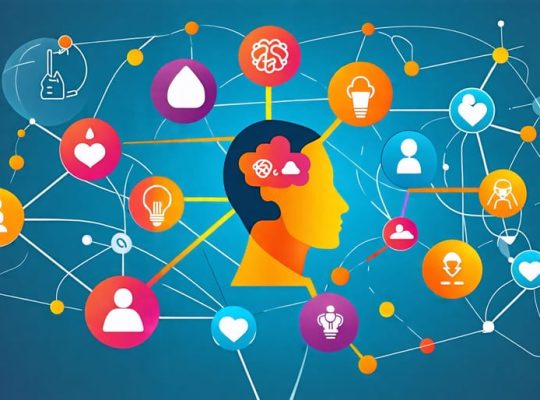Zinc deficiency silently devastates children’s mental health. This overlooked nutritional issue impairs brain development, stunts cognitive abilities, and fuels behavioral problems. Low zinc levels are linked to aggression, depression, anxiety, and attention deficits. Inadequate zinc intake during pregnancy and early childhood has lifelong consequences.
We must urgently address this “hidden hunger.” Testing zinc status, fortifying staple foods, and providing targeted supplements are crucial interventions. Educating parents and healthcare workers about zinc-rich foods and proper supplementation is key. With awareness and action, we can protect vulnerable young minds from the far-reaching fallout of zinc deficiency.

Understanding Zinc Deficiency
Causes of Zinc Deficiency
Zinc deficiency in children can be caused by several factors, the most common being inadequate dietary intake. Many children, especially picky eaters, may not consume enough zinc-rich foods like meat, poultry, seafood, beans, and fortified cereals. Vegetarian or vegan diets can also increase the risk of zinc deficiency if not carefully planned.
Malabsorption disorders, such as celiac disease or inflammatory bowel disease, can also lead to zinc deficiency. These conditions prevent the body from properly absorbing nutrients, including zinc, from food. Certain medications, like diuretics and antibiotics, can also interfere with zinc absorption or increase zinc excretion from the body.
Preterm infants, children with chronic illnesses, and those living in developing countries are at higher risk for zinc deficiency. Breast milk, while beneficial for infants, may not provide enough zinc after the first six months, so complementary feeding with zinc-rich foods becomes essential.
If you suspect your child may have a zinc deficiency, talk to your pediatrician. They can assess your child’s diet, growth, and overall health, and recommend appropriate interventions, such as dietary changes or zinc supplements, to ensure your child gets the nutrients they need for optimal physical and mental development.
Symptoms of Zinc Deficiency
Zinc deficiency can cause a wide range of physical and mental health symptoms in children. One of the most noticeable signs is growth retardation, where a child may not reach their expected height or weight milestones. This can be accompanied by a loss of appetite and a weakened immune system, leading to frequent infections and illnesses.
Cognitive development may also be impaired, with some children experiencing learning difficulties, memory problems, and reduced attention span. Behavioral issues such as irritability, lethargy, and depression have also been linked to zinc deficiency. In more severe cases, children may develop skin rashes, hair loss, and diarrhea.
It’s important to note that these symptoms can have multiple causes and may not always indicate a zinc deficiency. However, if you suspect your child may be deficient in zinc, it’s crucial to speak with a healthcare professional. They can conduct tests to determine if a deficiency is present and recommend appropriate treatment options, such as dietary changes or zinc supplements.
Remember, a balanced diet rich in zinc-containing foods, such as meat, poultry, seafood, beans, nuts, and whole grains, can help prevent deficiency and support your child’s overall physical and mental well-being.
Zinc and Children’s Mental Health
Zinc and Attention Deficit Hyperactivity Disorder (ADHD)
Recent research suggests that zinc deficiency may play a role in the development and severity of symptoms in children with ADHD. Zinc is essential for proper brain function and neurotransmitter activity, and low levels of this vital mineral have been observed in some children diagnosed with ADHD. Studies indicate that zinc supplementation, in conjunction with traditional ADHD treatments, may help reduce hyperactivity, impulsivity, and inattention in affected children. However, it’s important to note that more research is needed to fully understand the complex relationship between zinc and ADHD. If you suspect your child may have a zinc deficiency or ADHD, it’s crucial to consult with a qualified healthcare professional for proper evaluation and guidance on appropriate treatment options. Remember, every child is unique, and what works for one may not work for another. With compassion, support, and the right interventions, children with ADHD can thrive and reach their full potential.
Zinc and Depression
Zinc plays a crucial role in regulating mood and emotional well-being, particularly in children. Studies have shown that low zinc levels are associated with an increased risk of depression, anxiety, and other mental health issues. One study published in the Journal of Affective Disorders found that children with depression had significantly lower zinc levels compared to healthy controls. Another study in the Journal of Clinical Psychiatry reported that zinc supplementation improved symptoms of depression in children and adolescents.
Zinc is essential for the proper functioning of neurotransmitters, such as serotonin and dopamine, which regulate mood and emotional responses. It also supports healthy brain development and helps protect against oxidative stress and inflammation, which can contribute to mood disorders. Parents and healthcare professionals should be aware of the potential link between zinc deficiency and mental health issues in children. Ensuring adequate zinc intake through a balanced diet or supplements, under the guidance of a healthcare provider, may help support a child’s emotional well-being. If a child is showing signs of depression or other mood disorders, it is important to consult with a mental health professional who can provide appropriate diagnosis and treatment options.
Zinc and Anxiety Disorders
Recent studies have uncovered a compelling link between zinc deficiency and anxiety disorders in children. Zinc plays a crucial role in brain development and function, and low levels of this essential mineral may contribute to heightened anxiety. One study found that children with diagnosed anxiety disorders had significantly lower zinc concentrations compared to their peers without anxiety. Another research team discovered that zinc supplementation reduced symptoms of anxiety in children, suggesting a potential therapeutic role for this nutrient.
While more research is needed to fully understand the complex relationship between zinc and anxiety, these findings highlight the importance of ensuring children receive adequate zinc through a balanced diet or supplementation under medical supervision. Parents and healthcare providers should be aware of the potential mental health implications of zinc deficiency and take steps to address it. By prioritizing zinc nutrition, we may help safeguard our children’s emotional well-being and provide them with the support they need to thrive in the face of anxiety.
Preventing and Treating Zinc Deficiency
Dietary Sources of Zinc
Incorporating zinc-rich foods into your child’s diet is essential for maintaining optimal mental health. Some of the best dietary sources of zinc include lean meats like beef, pork, and lamb, as well as poultry, eggs, and seafood such as oysters, crab, and lobster. For vegetarian and vegan families, zinc can be found in beans, lentils, tofu, fortified cereals, nuts, and seeds like pumpkin and sesame.
To ensure your child is getting enough zinc, try including these foods regularly in their meals and snacks. For example, you can serve scrambled eggs with spinach for breakfast, pack a lentil soup or hummus with whole-grain crackers for lunch, and offer grilled chicken or tofu stir-fry with brown rice and vegetables for dinner. Snack options could include trail mix with nuts and seeds or yogurt topped with granola and berries.
It’s important to note that while these Dietary Sources of Zinc are beneficial, zinc absorption can be hindered by phytates found in grains and legumes. Soaking, sprouting, or fermenting these foods can help reduce phytate content and improve zinc absorption. If you’re concerned about your child’s zinc intake, consult with a pediatrician or registered dietitian for personalized guidance.
Zinc Supplementation
Zinc supplementation may be necessary for individuals with a diagnosed deficiency or those at risk of deficiency due to inadequate dietary intake, certain health conditions, or increased physiological needs. However, it is crucial to consult a healthcare professional before starting any supplement regimen, as excessive zinc intake can lead to adverse effects.
Your healthcare provider can assess your zinc status through blood tests and recommend the appropriate dosage based on your individual needs. They can also guide you on the most suitable form of zinc supplement and advise on potential interactions with medications or other supplements.
It is essential to remember that while zinc supplements can help correct a deficiency, they should not replace a balanced diet. Aim to include a variety of zinc-rich foods in your meals, such as lean meats, seafood, whole grains, legumes, and nuts. If you suspect that you or your child may have a zinc deficiency, do not hesitate to seek professional advice to ensure proper diagnosis and treatment.
Conclusion
In conclusion, zinc deficiency can have a significant impact on children’s mental health, leading to issues such as impaired cognitive function, increased risk of depression and anxiety, and behavioral problems. As parents, teachers, and healthcare professionals, it is crucial to be aware of the signs and symptoms of zinc deficiency and take steps to ensure children maintain adequate zinc levels through a balanced diet or supplementation when necessary.
If you suspect that your child may be experiencing zinc deficiency, it is essential to consult with their healthcare provider for proper diagnosis and treatment. By addressing zinc deficiency early on, we can support children’s overall mental well-being and help them reach their full potential.
Remember, a healthy mind and body go hand in hand, and ensuring proper nutrition, including sufficient zinc intake, is a vital step in promoting children’s mental health and happiness.







